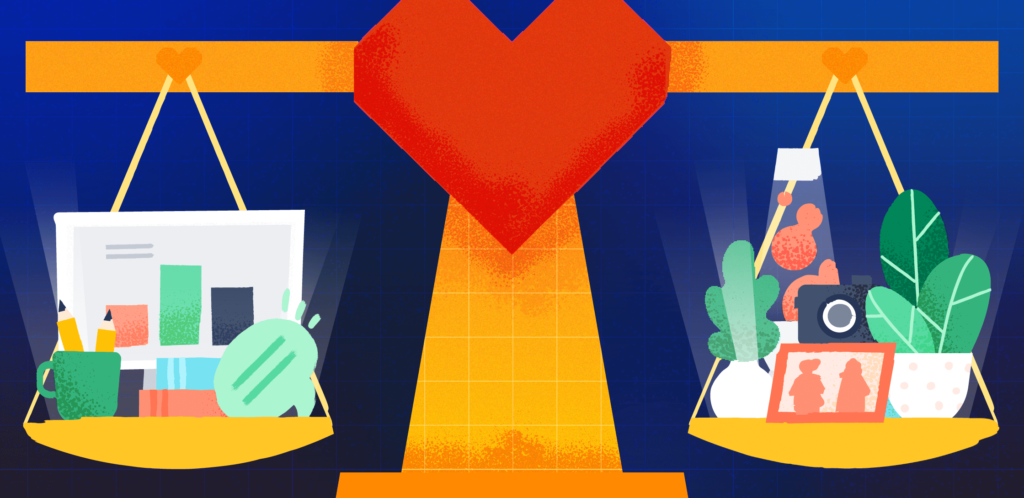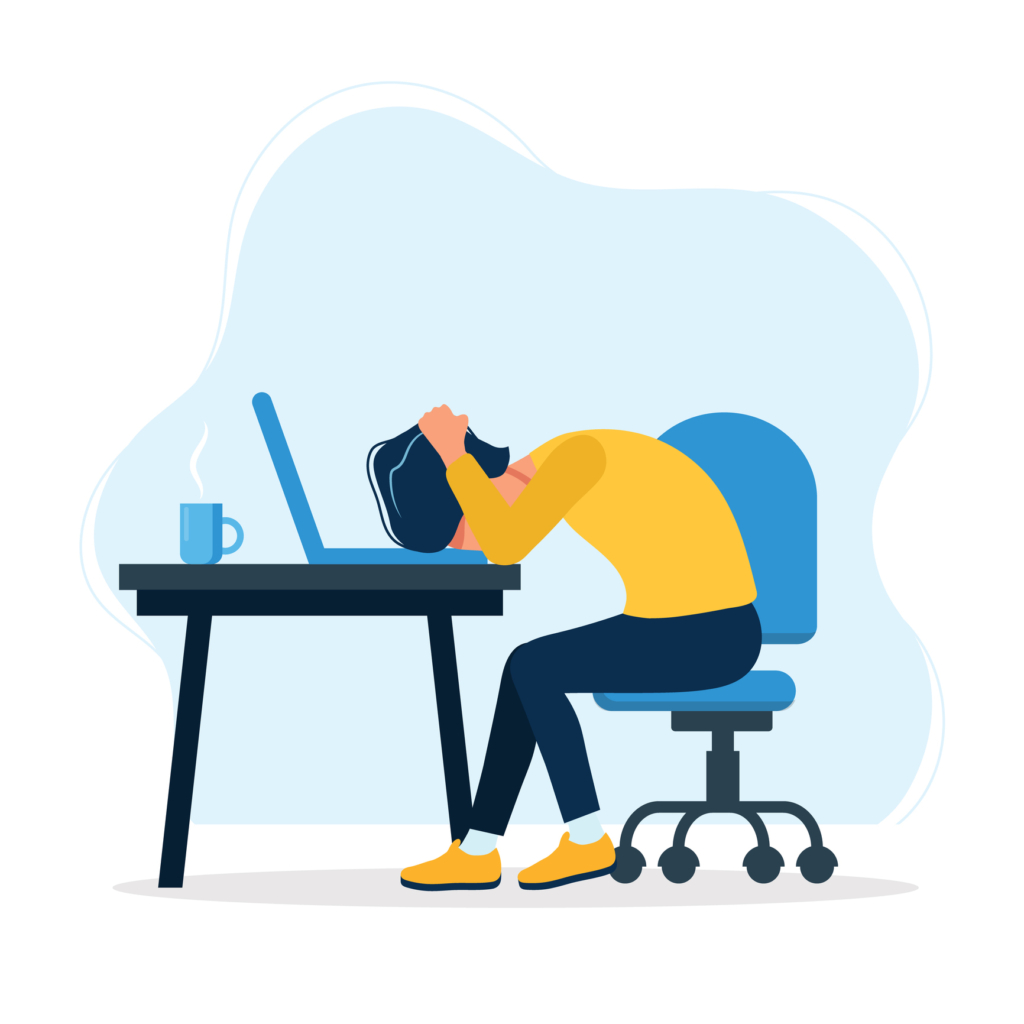The workplace plays an important role in our mental health. Burnout, defined as a state of physical, emotional and mental exhaustion caused by chronic stress at work, is an increasingly common problem today. If unmanaged, it can further worsen work performance, personal relationships and even physical health. Mental health at work is therefore essential. Here are some practical tips to help you maintain it:
1. Take regular breaks
Whatever your job, try to take a break every 1-2 hours to take a walk, take a deep breath or get up from your chair and disconnect from the screen. It has been scientifically proven that breaks between work activities can have beneficial effects on employee well-being and performance.
The lunch break is also an opportunity to recharge your energy, reduce stress and improve concentration for the rest of the day. Ignoring this break is associated with poorer performance, burnout and even long-term health problems. Block 30-60 minutes in your calendar for lunch so it becomes an integrated part of your day.
2. Create a comfortable workspace
Whether you work from home, your office or your car, you can try to personalize your workspace with personal items that relax you or make you feel safe, such as plants, photos or other decorations. Also make sure that you always have the correct posture and that you always have appropriate and safe equipment (e.g. a suitable office chair).
3. Create your a healthy work routine
A disorganized work schedule with chaotic hours can contribute to stress. Organize your day using a realistic, prioritized to-do list. Avoid multitasking, which can reduce efficiency and increase fatigue. Divide your work time into periods of concentration that avoid distractions completely, using techniques such as Pomodoro.
4. Know the mechanisms for reporting workplace abuse
Abuse in the workplace, whether in the form of harassment, discrimination, bullying or exploitation, perpetuates a toxic environment and can negatively affect mental health, self-esteem and productivity. Reporting them not only protects you, it also helps change organizational culture, preventing other colleagues from falling victim to the same behaviors. Knowing your rights and the mechanisms to defend them is a first step towards a safe and respectful working environment.
5. Remember that your job does not reflect your value as a person
In a society in which professional success is often seen as a measure of personal worth, it’s easy to fall into the trap of defining your identity in terms of your career. Your career is fluid: you can change jobs, industries or even career goals – your job is just one part of your life, not your whole universe.
6. Separate your personal and professional life
To avoid burnout, it is important to balance work and personal time. Remember that you can block calls and job-related notifications after work and build a routine that helps you completely disconnect from work responsibilities in your free time.

7. Do things that relax and make you happy
Give yourself time for hobbies or activities that bring you pleasure, whether it’s reading, cooking, painting or sports. These moments help you recharge your batteries and grow in other ways.
8. Look after your physical health
Physical and mental health are interconnected. Get enough sleep (for most people this means 7-9 hours a night), maintain a balanced diet and drink enough water. Exercise not only reduces stress but also improves your mood.
9. Connect with your loved ones
Social support is a protective factor against burnout. Spend time with family and friends, discuss your concerns and don’t be afraid to ask for help if you need it.
10. Seek support if you feel overwhelmed
Talk to a friend or colleague about the issues that are bothering you at work. Sharing your worries with someone you trust can be liberating and bring clarity. You can also talk to a mental health professional who can help you better understand your emotions and develop strategies to manage them. On our Map of Mental Health Professionals you can choose from over 300 psychologists, psychotherapists, counselors, psychiatrists and speech therapists, whom you can filter according to your needs.
.
.
Work is just one part of your life, and balancing work responsibilities with looking after yourself is the key to long-term success. Every small step you take for yourself contributes to a more harmonious and fulfilling life. Remember that you are more than the work you do!
The Mental Health for Romania team recommends the following resources to maximize productivity and well-being at work:
Applications:
- Forest is an app that helps reduce cell phone distractions. You can plant trees in a virtual garden by not using your phone for a period of time. This can be a way to implement the Pomodoro technique.
- Calendly is a web and mobile app that makes it easier to organize and integrate your appointments into your calendar.
- Trello is a list and card-based project management tool ideal for organizing tasks and collaborating with your team.
- Headspace offers guided meditations, mindfulness exercises and stress reduction techniques. Ideal for office breaks.
- Calm focuses on relaxation, sleep and reducing anxiety, including audio stories, soothing music and breathing exercises.
Podcasts:
- The Mental Health for Romania podcast (RO) offers a wide variety of discussions about mental health, in the form of interviews with specialists or personal stories, including episodes on burnout or the science behind procrastination.
- In My Rhythm (RO) encourages self-acceptance and discussions about emotions, as well as tackling topics such as burnout and procrastination.
- WorkLife with Adam Grant (explores work psychology, work relationships and how to create a healthy work environment.
- The Happiness Lab (a podcast created by Dr. Laurie Santos, offers science-based advice on how to improve your well-being, including professionally.
Articles:
- Mental Health at Work
- The Future of Mental Health at Work Is Safety, Community, and a Healthy Organizational Culture (EN)
- How to Take Better Breaks at Work, According to Research (EN)
- WHO Global Strategy on Health, Environment and Climate Change The transformation needed to improve lives and wellbeing sustainably through healthy environments
- “Give me a break!” A systematic review and meta-analysis on the efficacy of micro-breaks for increasing well-being and performance (EN)
- Breath and nature (EN)
- Mindfulness and its benefits (EN)


